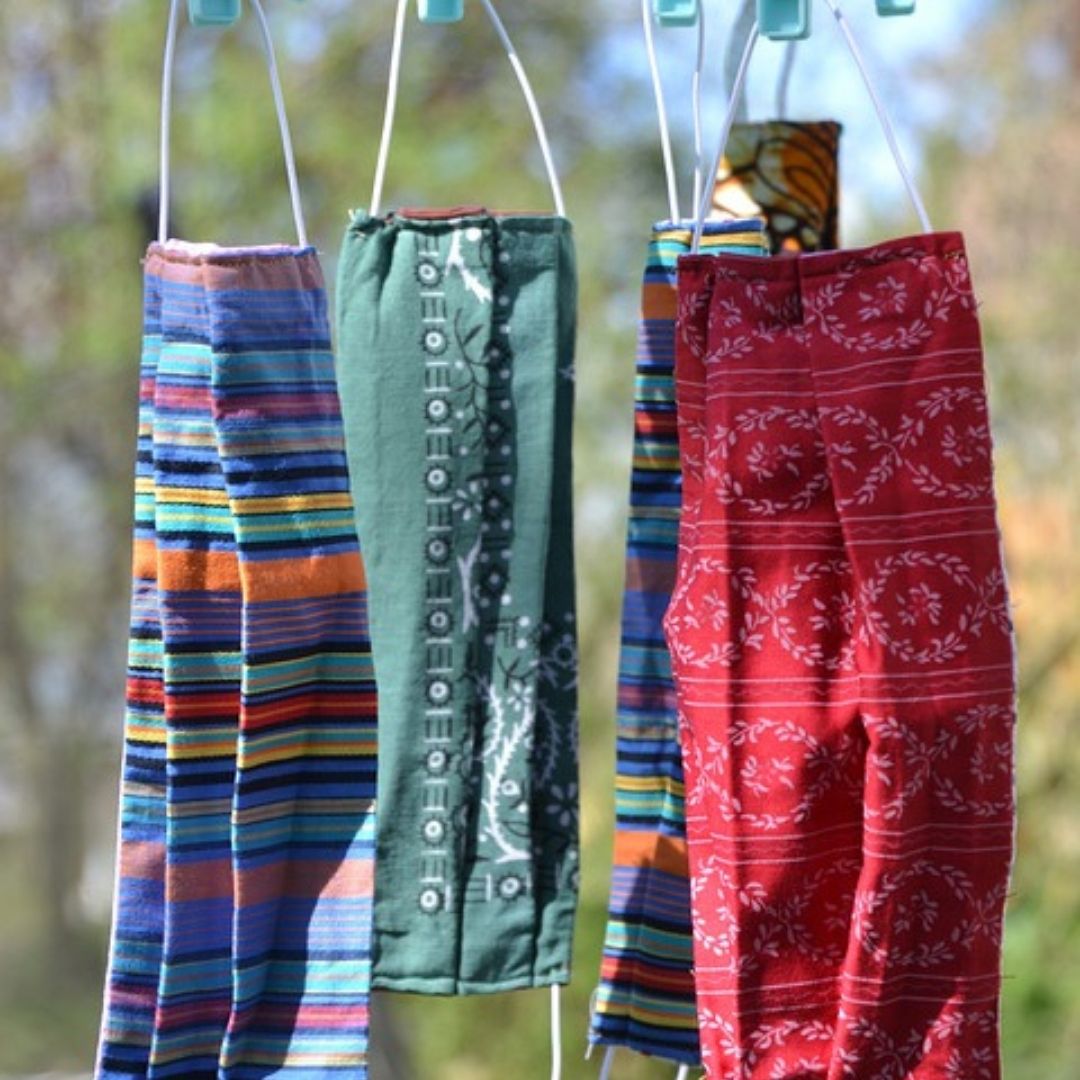
Image Credits: Pixabay
Reusable Cloth Masks May Be Effective Up To A Year, Says New Study
Writer: Tashafi Nazir
For most people, journalism sounds hectic and chaotic. For her, it's a passion she has been chasing for years. With an extensive media background, Tashafi believes in putting efforts on presenting a simple incident in the most interesting way.
Others/World, 11 Sep 2021 8:51 AM GMT
Editor : Palak Agrawal |
Palak a journalism graduate believes in simplifying the complicated and writing about the extraordinary lives of ordinary people. She calls herself a " hodophile" or in layman words- a person who loves to travel.
Creatives : Tashafi Nazir
For most people, journalism sounds hectic and chaotic. For her, it's a passion she has been chasing for years. With an extensive media background, Tashafi believes in putting efforts on presenting a simple incident in the most interesting way.
The study conducted by researchers of the University of Colorado in the US and published in the journal Aerosol and Air Quality Research, gives the nod to the previous studies that putting a cotton mask over a surgical mask provides more protection than a single cloth mask alone.
Reusable cloth masks can be effective up to a year, as multiple washing and drying do not reduce the ability to filter out viral particles, a new study has found.
The study, conducted by researchers of the University of Colorado in the US and published in the journal Aerosol and Air Quality Research, gives the nod to the previous studies that putting a cotton mask over a surgical mask provides more protection than a single cloth mask alone.
"It is good news for sustainability. The cotton mask you have been washing, drying and reusing? It's probably still fine, don't throw it away," lead author of the study Marina Vance, an assistant professor at the University of Colorado said, reported News 18.
Since the beginning of the COVID-19 pandemic, around 7,200 tonnes of medical waste has been generated every single day —with disposable masks contributing the most, the researchers pointed.
"We were worried during the start of the pandemic, we used to see all these disposable masks littering the environment," said Vance. To test the efficacy, the researchers then created double-layered squares of cotton, put them through repeated washing and drying for a year, and later tested them between about every seven cleaning cycles, News18 reported.
Repeated Washing And Drying Did Not Affect Cloth's Filtration Efficiency
The masks were attached to the end of a steel funnel through which researchers could control a consistent flow of air and airborne particles. The fabrics were tested using almost realistic conditions that included high humidity levels and temperatures to mimic the mask's impact from human breath.
The researchers found that repeated washing and drying did not affect the cloth's filtration efficiency, despite the mask falling apart after repeated procedures. The only change they observed was that inhalation resistance slightly increased, which means it may become little challenging for a person to breathe through it after some wear and tear.
Notably, the testing was done using a 'perfect fit' in the laboratory. "We assumed there are no gaps between the cloth and the person's face," said Vance.
As per the study, cotton masks filtered out about 23 per cent of the smallest particle size of 0.3 microns on which the virus can travel. Bandanas filtered even less, at only 9 per cent. Comparatively, the cotton masks atop surgical ones filtered out nearly 40 per cent of the particles. KN95 and N95 masks showed the best results, with a filtration efficiency of 83-99 per cent.
Also Read: 42 Private Hospitals, Nursing Homes Receive Notice To Shut Down In Ahmedabad
 All section
All section














